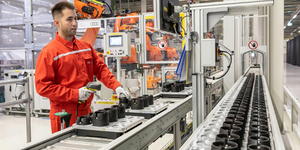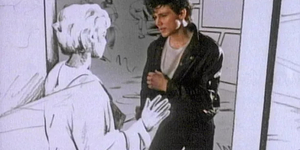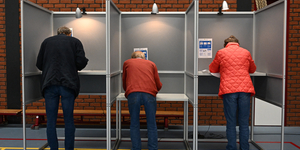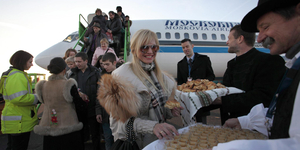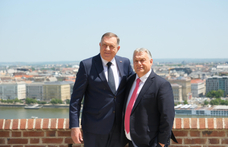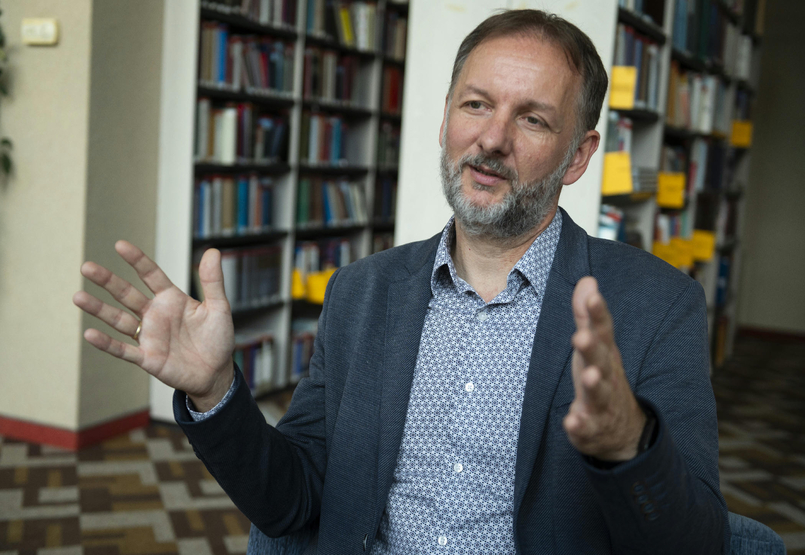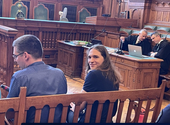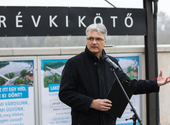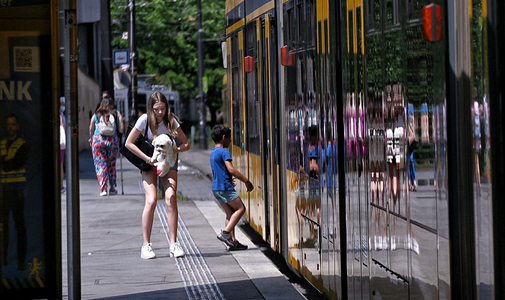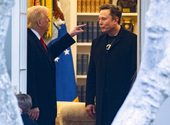Not such an excellency
After his first year in office, we know what kind of president Laszlo Solyom does not want to be. Over the summer, his influence and popularity have sunk to new lows. Up until now he has barely been able to show the positive sides of his presidential style.
A visit by motorboat to Szigetkoz, a protest walk to Zengo near Pecs, a bicycle demonstration in Budapest as a member of Critical Mass. Laszlo Solyom, who moved into the Sandor Palace last August, has not followed the well-trodden path of his predecessors over this past year. The president has not opened memorial buildings in different villages, he has not opened trade fairs with dignified speeches and he has not troubled to illuminate town twinning ceremonies with his presence. The third president of the Third Republic has been cautious in exercising his constitutional power as well. He has not flooded his former workplace, the Constitutional Court, with referrals, and he has resisted the temptation to submit draft laws to Parliament.
"It is not my aim to present reservations or proposals all the time. I see the office of President in sitting motionlessly, watching, and acting - but only if necessary. Presidents do not jump," said Solyom before he was elected. Thus far, he has stuck to this position. He has got results. The popularity of the president has plumbed historic new depths over the past month. Referring to Arpad Goncz, the first president, Solyom said last year: "I do not want to be our beloved president." So his strivings have been crowned with a complete success. The president, whose satisfaction index stood at 75 per cent last year, now enjoys the confidence of 55 per cent of the population, according to Median.
Yet Solyom has clearly succeeded in his job. The respect he commanded helped him overcome every problem at first. Peter Paczolay, the head of the president's office, was elected a constitutional court judge in December 2005, with the support of all the parliamentary parties. The Socialists had not made this gesture on behalf of Ferenc Madl a year before. As regards the Nato radar planned for the Zengo Hills, the government gave in to Solyom and the locals of the region. It remains to be seen, however, if the radar will end up on Tubes Hill, which is even closer to the town in question. The new president's popularity remained undamaged by this radical intellectual's dispute with the United States. Solyom first stated that he would not go to the US while Hungarians were obliged to obtain a visa and give a fingerprint in order to go there. A few weeks later, he nonetheless went to a meeting of the UN General Assembly in New York.
On 1 January 2006, Solyom broke with the tradition of several decades by delivering his New Year's Address not on New Year's Eve but in daylight on the following day, every sign suggested that Solyom would inherit the huge popularity enjoyed by his predecessors.
In his first year, Solyom has tried to shape presidential office after his own image. A full-page photo in a tabloid paper recently showed just how this radical intellectual wants to reshape the presidency. On the picture, the presidential couple look proudly into the camera, surrounded by a few grandchildren. In an interview given in June on the anniversary of his election, Solyom said that in retrospect the act that lost him so much respect was a mistake. "I did not want to offend anybody," he said. He claimed that he had subsequently shaken hands with an 88-year-old man, an emblematic banker of the Kadar Era. When individual was awarded a state medal on 15 March, however, Solyom did not shake hands with him. The retrospective damage limitation exercise did little to reestablish Solyom's popularity. Relations seem to have broken down between Solyom anbd his people.
As founding president of the Constitutional Court, Solyom was thought by many to enjoy the prestige of his office perhaps too much. But he has been a devotee of a passive presidential politics. He said in advance that he wanted to strengthen the weight and prestige of his office by speaking only rarely. In his first year in office, the president has stuck to his appealing, but apparently counterproductive philosophy. It is clear what kind of president Solyom does not wish to be. The president's environmentalist gestures, his anticonsumerism and his metaphysical abstraction have not yet formed a coherent moral justification for his presidency.
His 'diplomatic' successes stalled early on. The Constitutional Court is once more below quorum, the office of Chief Prosecutor has been vacant for three months and there has been no progress on filling the two empty slots on the State Audit Commission which have stood empty for years. In this context, Solyom's dignified silences look like uncertainty. Beyond this, Solyom's few set-piece speeches - above all his address to Parliament on Holocaust Memorial Day - have elicited almost no reaction. There are those in the president's circle who suggest he would do well to repeat the very same speech next year for added effect.
But it was not just a few ill-thought-out gestures and sparse communication that led to the decline in the president's popularity. Solyom simply miscalculated when, for example, he nominated Miklos Horanyi, a close ally of Peter Polt, as chief prosecutor. The decision was criticised partly because the 66-year-old would have been unable to complete his mandate. This would have given a president chosen against the wishes of the largest coalition party the chance to wield influence over the appointment of Horanyi's successor as well. Just 10 months after coming into office, Solyom was faced with the situation he wanted to avoid: Parliament voted down his nominee.
The president will certainly be reflecting on his first year in office. Especially since Solyom has himself said: "It takes time for a person to understand how to speak, what he is to say, and how he is to say it." The president has not wasted his year of apprenticeship. He has established a group of European Green presidents. He has sent coded messages against genetic manipulation and even set up a bike shed next to the Sandor Palace. Maybe some of these initiatives will take root, perhaps to sprout by 2010.
BABUS ENDRE

